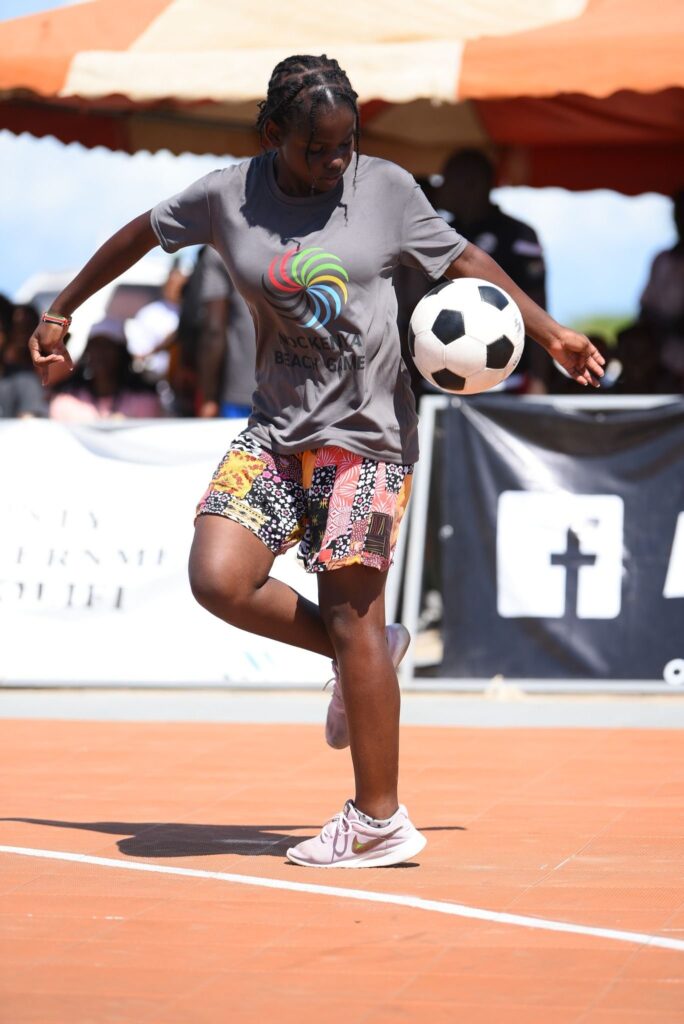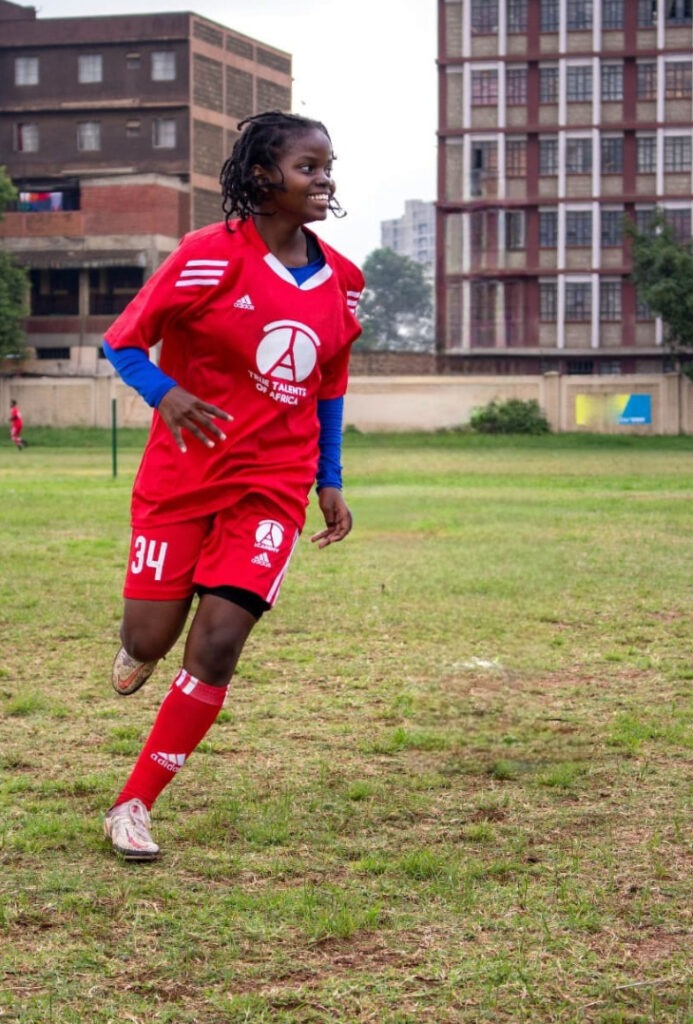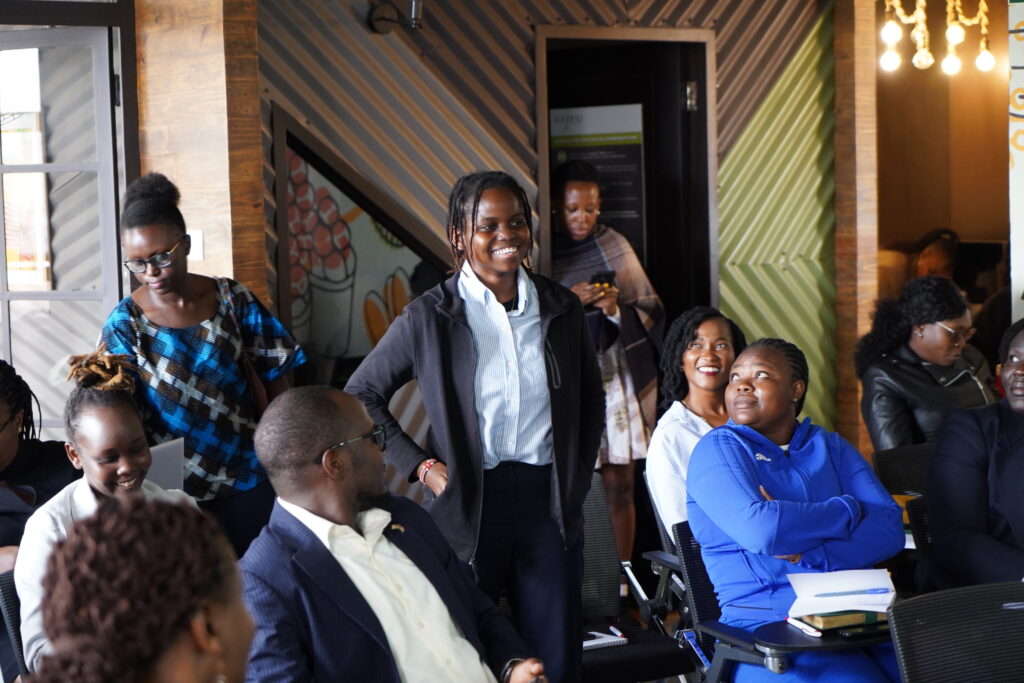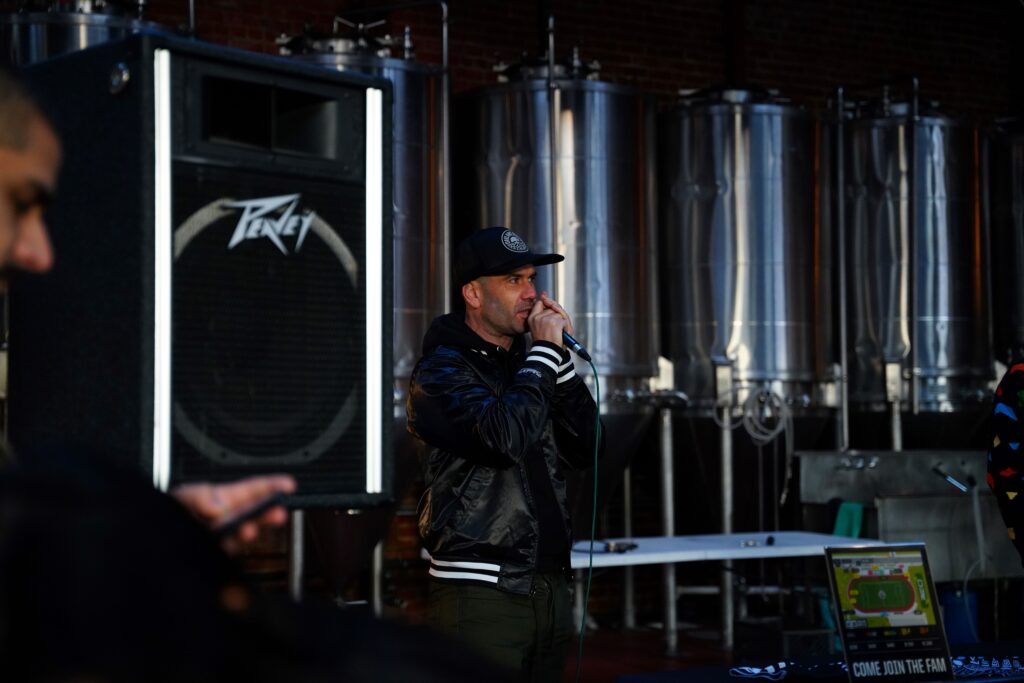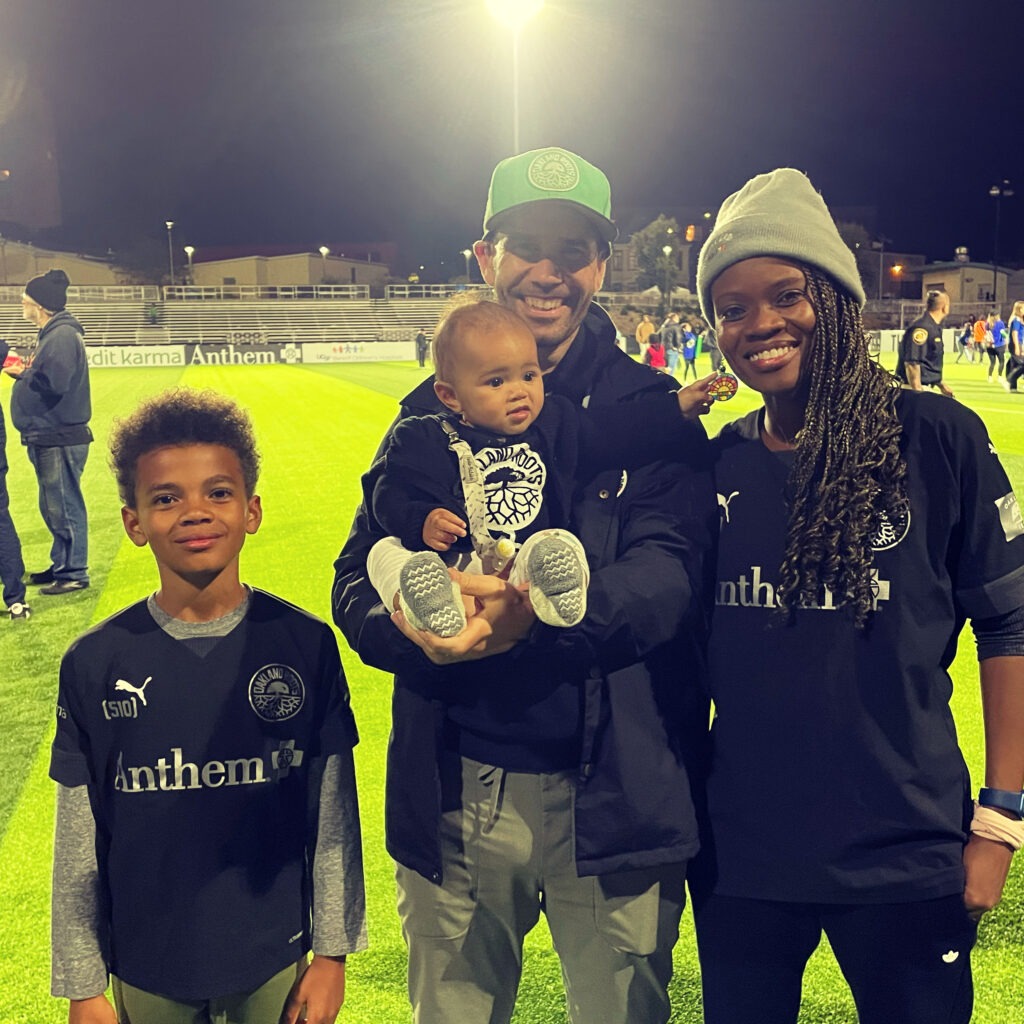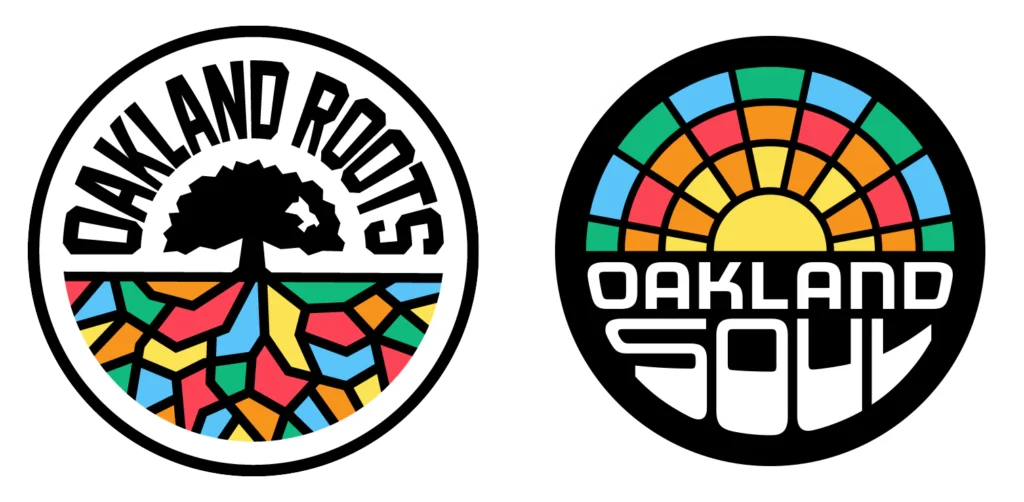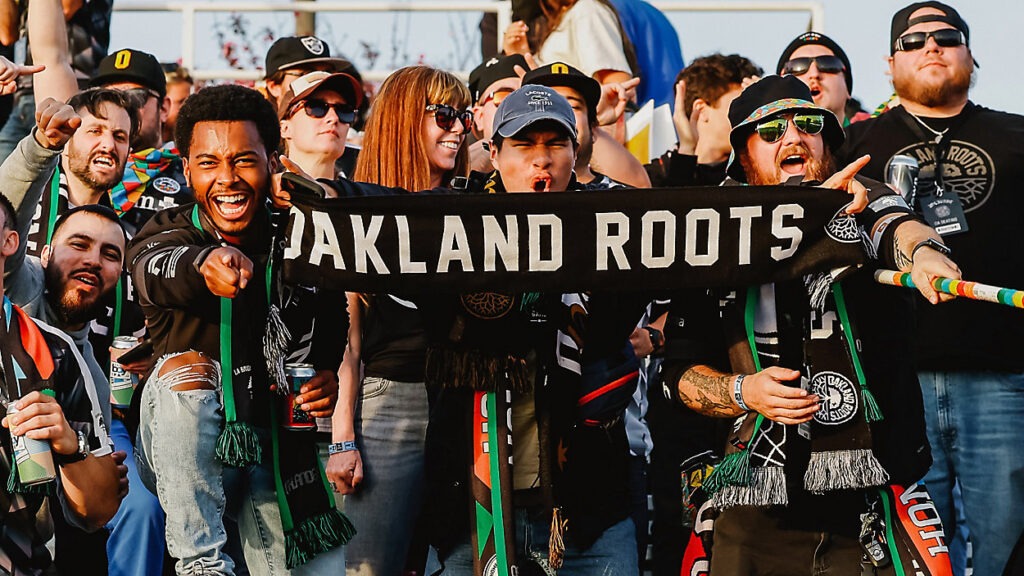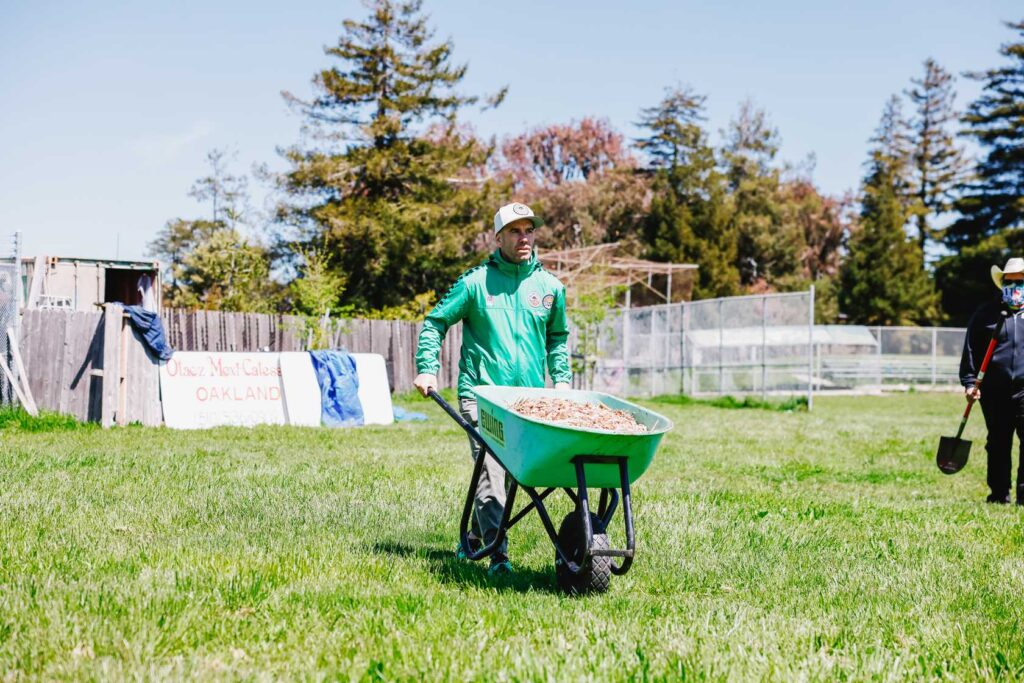Elin Landström has built an impressive career in professional football, winning a Serie A title with AS Roma and competing at the highest levels of the game. As women’s football continues to grow, she has seen firsthand the progress being made and the challenges that remain. Beyond her achievements on the pitch, she is also passionate about making the sport more sustainable and accessible for future generations.
In addition to her playing career, Elin is an advocate for climate action and social impact in football. As an ambassador for Common Goal and Football4Future, she is helping to raise awareness about how football can be a force for positive change. She also speaks about the need for more women in coaching, emphasizing how role models play a decisive role in showing young girls that they can have a future in football—both on and off the pitch. Elin joins us today to share her experiences in the game, her thoughts on the growth of women’s football, and why sustainability and representation in sport are issues she cares deeply about.

Bonito: Elin, its such an honor to have you join us on the Bonito platform!
Elin: Thanks so much for having me, what a great initiative!
Bonito: Can you please tell us about how your passion for football began and how that translated into your incredible journey through grassroots football clubs to some of the biggest clubs in professional football?
Elin: My passion for football began in my backyard in northern Sweden together with my two siblings. We also lived close by the pitch where the local team played and always went there to watch their games. Later on my parents brought me to the closest city, Umeå, to watch Umeå IK who were the real giants during the beginning of 2000 and that’s when I started dreaming of becoming a player in Damallsvenskan (Women’s top division in Sweden). I was lucky enough to be able to play for their youth team when I was about 14 years old and when I was 16, I did my first session with the first team. My debut for Umeå IK was actually in the Champions League and it was a dream come true. I stayed in Umeå for seven more years before moving to Gothenburg and then over to Linköping. After more than 12 years in Damallsvenskan I joined Inter Milan and moved to Italy. I spent one year in Inter before moving south and played for AS Roma where we won the league. Moving abroad was the most inspiring and yet challenging thing I have ever done. It was a journey I will never forget and always will cherish.

Bonito: What a fantastic career you have had. It also seems that growing up in Umeå and seeing the game so close was a big factor in your dreams of becoming a professional player. What role did your coaches along the way have in your development as a player and a person? Is there one coach in particular who stands out in your mind?
Elin: I have had several coaches during my career, and they have all taught me something. The one coach that meant the most to me is Joakim Blomqvist. We worked together during my time in Umeå and without his help I don’t think I would have been able to play at the level I actually did. He gave me tools and knowledge on football but also on the psychological skills you need to build the resilience you need to perform at a professional level.
Bonito: Womens football is growing and more and more young competitive girls are seeing that it is possible to have a career as a professional player although there is still so much to be done in this arena- can you remember the moment that you realized that your dreams of being a professional football player could be a reality?
Elin: I had the, maybe unique, opportunity to grow up in Umeå while Umeå IK was the biggest club in Europe. I could watch high quality football every week and I got role models from a young age, at a time when women’s football wasn’t that visible. For me, it came
naturally that both boys and girls could become professional players. It turned out it wasn’t completely true at that moment, but what was important was my belief in it. I think this is what’s still important and there’s still a lot to be done. Making women’s football visible, making it easier for young girls to connect and get role models, will create big dreaming girls.

Bonito: Can you describe what it was like to play for both Inter and AS Roma in the Italian football league? What role do these bigger traditional clubs have in growing the women’s game.
Elin: It was a big cultural change for me to play in Italy compared to Sweden. I learned a lot during my years in Italy and I think the leagues can learn a lot from each other. Where Sweden has been creating good conditions in women’s football for a long time, the Italian
clubs are just starting, but they have completely different possibilities to make the big investments. It was truly inspiring to see from within these organisations, but I can also see how things could be done more efficiently. Big traditional clubs have a big role in the development of the women’s game and sharing experiences and ideas between clubs, leagues and countries will speed up the growth to unimaginable levels.

Bonito: Both in Sweden and Globally, there is a shortage of female coaches and technical staff despite the game growing at such a rapid pace- how can we encourage more girls and create the conditions necessary for them to stay in the sport and continue as coaches and staff? It seems that this is vital also when we discussed earlier that role models can be the reference point to believing one can have a future in the game.
Elin: This is a simple but yet complicated question. We need to find out what the girls and women need in terms of conditions to be willing and able to stay, or get in to the coaching and staff of football. I don’t think we should only focus on previous professional players, there are plenty of intelligent women out there who could be excellent coaches without a professional career as a player. With that said, I find it important to make bigger investments on an educational level, to make it accessible for women. There is also a need of investment in time, where this education and investments are being directed to the right group.
Bonito: You retired from football last year, can you tell us a bit about your next career and also your role on the commercial supervisory board at FIFPRO?
Elin: I was studying law during my career and have a master’s in law and sports law. Now I find myself a legal associate at a law firm in Umeå, Ahlgrens Advokatbyrå. I am still engaged in football through the board of Spelarföreningen (Swedish Players Union) and FIFPRO, and I am very grateful to be able to keep working with the areas I find interesting, law and sports. Through FIFPRO and Spelarföreningen I get to keep strengthening and securing the rights of players, which I find really inspiring.
Bonito: At AS Roma, you took part in a unique sustainability campaign where the club went directly to the supporters to decide which social issues were most important for the club to address in its sustainability strategy- can you tell us a bit about that experience and why its so important for a club to listen to its members like that with regards to the pressing needs that local communities are experiencing?
Elin: Sometimes campaigns and initiatives can tend to not actually reach the targeted group, and might even disconnect the organization from it. By listening to the members of the club, who they wanted to reach, I think the members found the campaign more authentic and targeted to them. By connecting in that way, it may be easier to then present new initiatives and help the members to take better decisions, in this case regarding sustainability. The starting point of these matters are very different around the world, and also within Europe. I think its important to make it easier for everyone to take good decisions for themselves and our planet, but it must start at a level that seems doable for the individual.

Bonito: Could you give some advice to grassroots football clubs who want to be more inclusive and grow womens football- what are some of the most important steps that a club director can take to ensure conditions are right for young girls to become passionate football players for life?
Elin:I think the main point here is “for life”. The debate is often stuck at how to create more and better professional players, but I don’t think that should be the objective as a grassroots football club. By creating an inclusive environment where as many kids as possible is
felt seen, we are giving them the opportunity to become passionate football players for life. This will probably strengthen the level of professional players in long term, but more important is that all the kids get to find the love of football.
Bonito: Thanks so much Elin, its been an honor to have you join us on the platform. Such a wonderful career and we look forward to following your next career and hopefully collaborating on some projects together!
Elin: That would be great. Thanks so much for welcoming me to the Bonito community.
BIO
Name: Elin Landström
Organization: Ahlgrens Advokatbyrå (Legal Associate), Spelarföreningen (Board member), FIFPRO (Commercial Supervisory Board), Common Goal/Football4Future (Ambassador), We Play Green (Team Player)
Favorite Football Club: Umeå IK
Dream sport for good organization that you would love to collaborate with on a project: I’m always open for collaborations where sport and climate issues are being connected.



